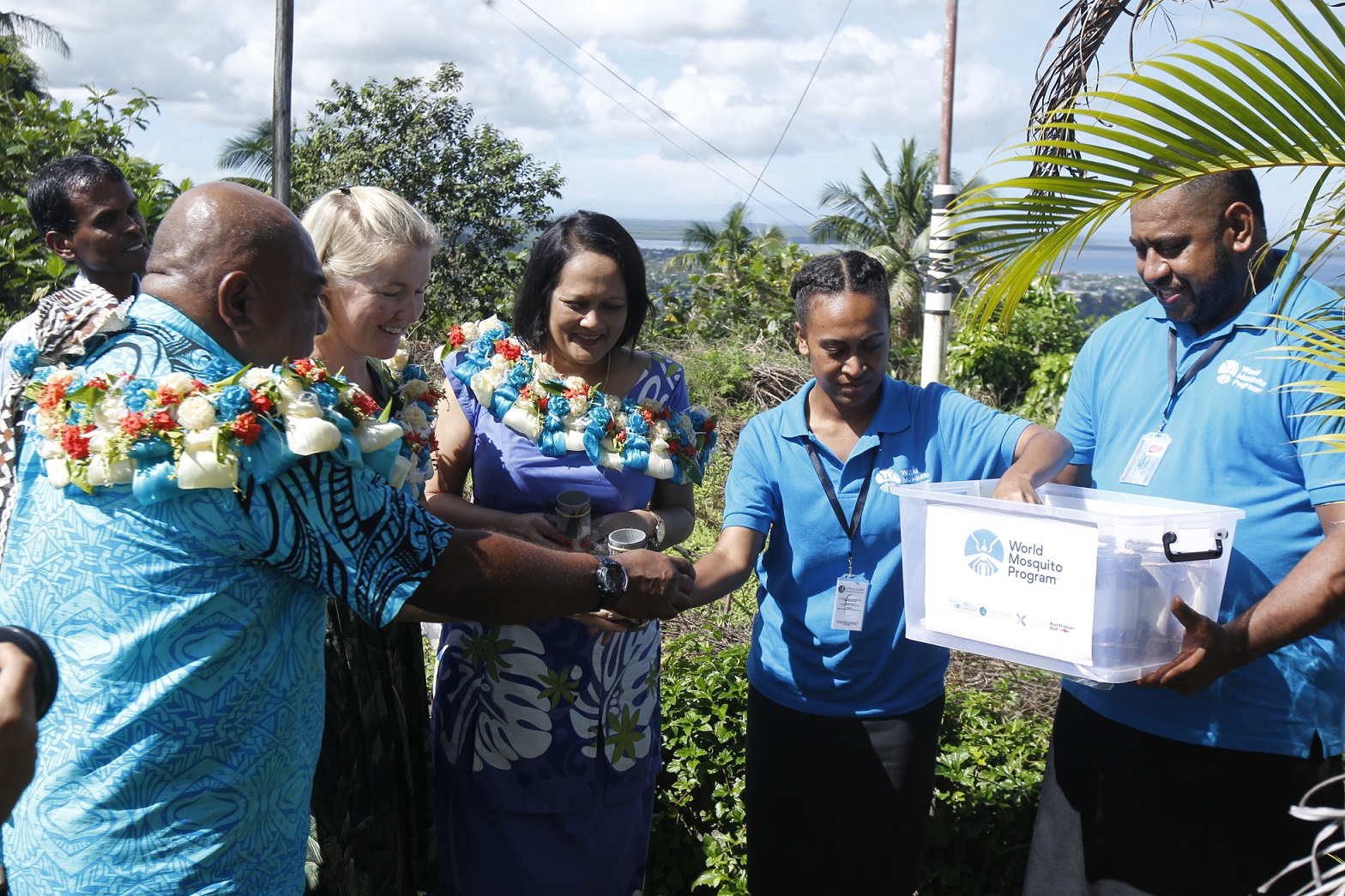THE revelation that more than 300 villagers of Tamavua Village in Suva were content after the release of the first batch of mosquitoes with Wolbachia this week is quite interesting.
They were released at their village on Monday as the fight continues against mosquito-borne diseases.
Tui Tamavua Ratu Apenisa Loki said it was a proactive step to keep families safe from mosquito-related diseases. The World Mosquito Program (WMP), in a statement, said Wolbachia was a safe, naturally occurring bacterium that reduced the spread of dengue, chikungunya and Zika viruses.
Ratu Apenisa said the Suva-Nausori project was a pilot one for Fiji and Tamavua Village was privileged to be the first community in Fiji to have the Wolbachia-carrying mosquitoes released.
The Australian Deputy High Commissioner to Fiji, Amy Crago, said the WMP was among a few of the projects supported by InnovationXchange that were chancing on new approaches to address communicable diseases in Fiji.
She said thousands of Fiji mosquito eggs were taken to Australia where they were hatched and mated with the Australian Wolbachia-bacteria carrying-mosquitoes. The eggs were then transported back to Fiji in a controlled environment and hatched for release on Monday.
Meanwhile, Minister for Health Rosy Akbar said a total of 3437 confirmed cases of dengue were recorded between January 1 to May 31 this year.
Unfortunately, she said, some of our people die tragically because of some of these diseases, one of which was dengue.
Dengue fever continues to be a threat, she reiterated, and continues to kill people and it demands a more consolidated effort from everyone. There were 25 types of mosquitoes in Fiji and only two caused dengue, she said.
Dengue fever, a vector-borne viral infection transmitted by Aedes mosquitos, isn’t something we should take lightly.
The World Health Organization estimates that between 50 and 100 million people are infected annually around the world.
People suffering from the infection will have a number of symptoms including high fever, severe joint pain, rashes, vomiting and mild bleeding from the mouth and nose.
Symptoms last between five to seven days. While there is no vaccine for it, most people quickly recover with proper medical care.
While it is encouraging to see proactive measures being taken to combat mosquito-borne diseases, prevention is critical and must involve everyone, from the State to the average man and woman on the street.
Diseases such as dengue fever can be fatal.
We should keep our compounds clean. We should empty containers, get rid of old tyres, drums and make sure pot-plants are not carrying stagnant water.
We must be aware of the little things we can do to contribute to the greater good of the nation.
We hope the authorities will take action on neighbours who are not complying with the need to keep their compounds clean and get rid of all mosquito breeding places.
We should remain vigilant and considerate.





